Relationship

Letting Go With Grace: Emotional Tools for Closure
Letting go is never easy. Whether we are parting ways with a loved one, ending a relationship, leaving a job, or saying goodbye to a cherished chapter of life, the emotional weight can feel overwhelming. Yet, closure is essential for our emotional well-being. Without it, we carry unresolved grief, anger, regret, or longing that can seep into new relationships and experiences, holding us back from healing and growth.

Boundaries in Love: Saying ‘No’ Without Guilt
Love, in its truest form, should be a safe space—a space where individuality is not only respected but celebrated. Yet, in many relationships, especially in the Indian cultural context, love is often misunderstood as constant availability, complete sacrifice, and putting the other person first, always. As noble as this may sound, this version of love often leads to emotional exhaustion, suppressed resentment, and the erosion of one’s identity.

Gaslighting in Relationships: What It Is and How to Heal
Gaslighting is a form of emotional abuse that erodes your ability to trust your own perception. It’s a slow, insidious process that often begins with subtle doubts and ends with complete self-questioning. In romantic relationships—especially in the Indian context where silence, compromise, and duty are often mistaken for love—gaslighting can be even harder to recognize.

Employee Motivation 2.0: Modern Hacks vs. Traditional Methods
Sitting in his corner office, Amit, the CEO of a fast-growing tech firm, rubbed his temples in frustration. “We’re losing good people,” he muttered, scanning the latest resignation letter on his desk. “Our turnover is skyrocketing, productivity is slipping, and I can feel the low energy in the office. What’s going wrong?”

Toxic Relationships and Mental Health: Recognizing the Red Flags
Relationships should bring joy, support, and a sense of belonging. However, not all relationships are healthy. Some become emotionally draining, mentally exhausting, and even harmful. When a relationship turns toxic, it can severely impact a person's mental health, leading to anxiety, depression, and a loss of self-worth.

Coping with Financial Challenges: Strategies for Mental and Emotional Well-Being
Financial challenges are a universal struggle, impacting not just your wallet but your mental and emotional health as well. Whether it's the stress of mounting debts, job insecurity, or the pressure to provide for your family, financial difficulties can take a significant toll on your overall well-being. While financial stability is an ideal goal, it's equally important to address the mental and emotional challenges that accompany financial strain. In this blog, we will explore strategies to manage these challenges and how platforms like CareMe Health can support you in navigating these turbulent times.

Coping with PTSD: A Guide to Healing
Post-Traumatic Stress Disorder (PTSD) is a mental health condition triggered by experiencing or witnessing a traumatic event. Coping with PTSD can be a challenging journey, but various techniques have been developed to aid healing.

Understanding Depression: Symptoms, Causes, and Treatments
Depression is a complex mental health condition that affects millions of individuals worldwide. It is more than just a feeling of sadness; it is a persistent state of low mood and aversion to activity that can significantly impact one's quality of life.

How Technology Fuels Procrastination and Tips to Combat Digital Distractions
Technology has revolutionized the way we live, work, and connect with others. However, it has also introduced a pervasive challenge: digital distractions. From social media notifications to endless scrolling on video platforms, technology often becomes a major contributor to procrastination. In this blog, we’ll explore the science behind how technology fuels procrastination, the psychological impact of digital distractions, and actionable strategies to regain control of your focus and productivity.

Loneliness and Mental Health: Why It’s More Than Just Feeling Alone
In an increasingly connected world, loneliness has emerged as a paradoxical epidemic affecting millions globally. While loneliness might seem like a simple feeling of being alone, its implications run deeper, affecting not just emotional well-being but also physical and mental health. In this blog, we delve into the profound connection between loneliness and mental health, explore its effects, and discuss how platforms like CareMe Health can provide a lifeline to those struggling with isolation.

Friendship Breakups: How to Handle Losing Friends and Moving Forward
Friendships are integral to our lives, especially during the teenage years when friends become a central part of our identity and support system. However, just as romantic relationships can end, friendships can also change or dissolve, leaving emotional challenges in their wake. A friendship breakup can be emotionally overwhelming, but understanding ways to cope and move forward can help make the process smoother.

Dealing with Burnout: How to Recognize and Recover from Chronic Stress
Burnout is more than just feeling stressed or overwhelmed. It’s a state of emotional, physical, and mental exhaustion caused by excessive and prolonged stress. Burnout often occurs when you feel overwhelmed, emotionally drained, and unable to meet constant demands. As it persists, it can lower your productivity and leave you feeling helpless, cynical, and resentful. With the rise in workload and constant connectivity in today’s world, especially post-pandemic, burnout has become a common issue among professionals, students, and caregivers.

Breaking the Silence: Understanding Depression in Young Students
Depression among young students is a growing concern, yet it often goes unnoticed or misunderstood. The academic pressures, social struggles, and rapid changes that characterize youth can contribute to a decline in mental health, sometimes resulting in depression. This mental health condition not only hampers a student's academic performance but also affects their social interactions, self-esteem, and overall well-being. Understanding depression in young students is essential for parents, teachers, and caregivers to provide timely support.
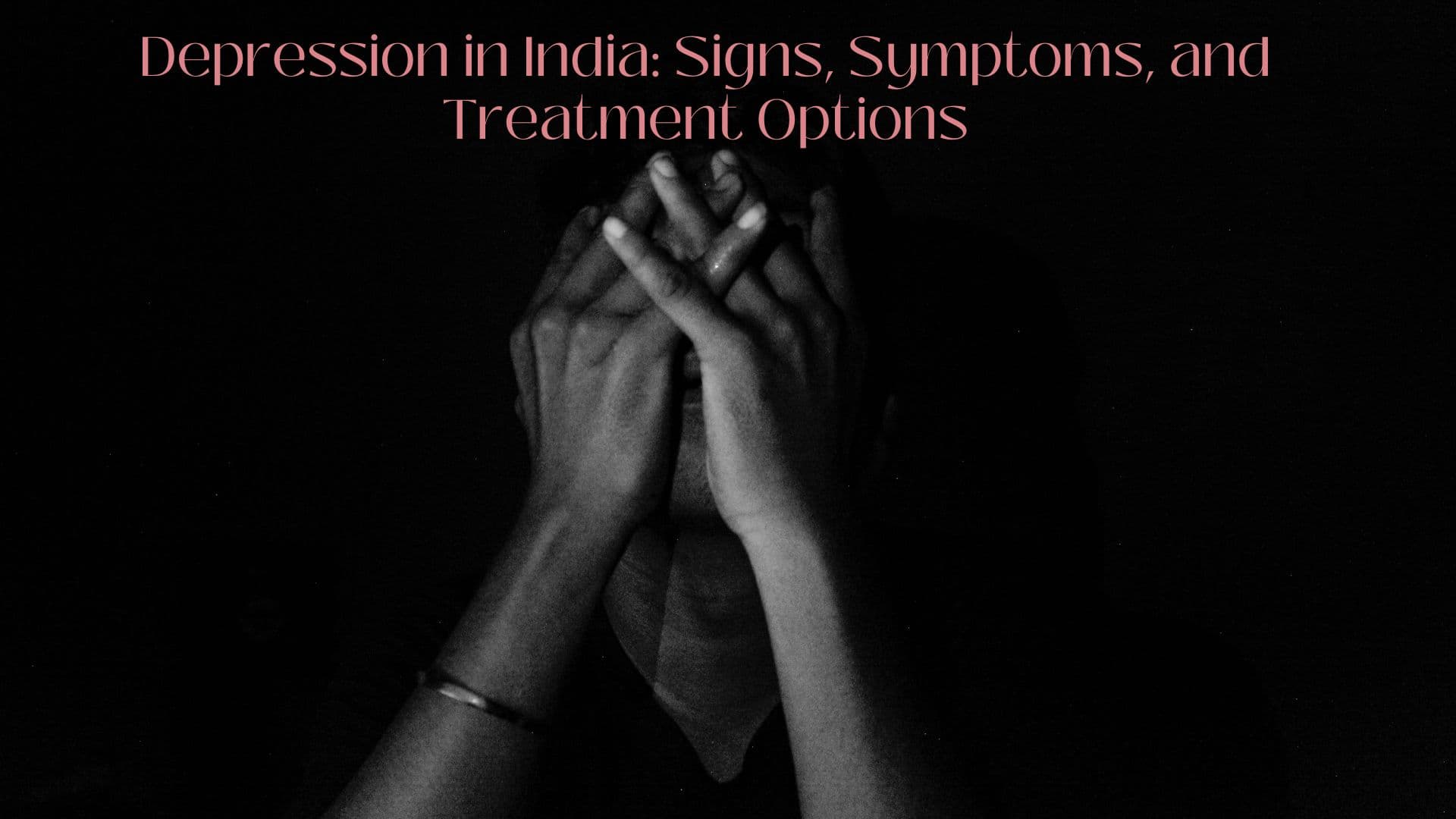
Depression in India: Signs, Symptoms, and Treatment Options
Depression is a significant mental health issue affecting millions of individuals worldwide, including a substantial number in India. Despite growing awareness, the stigma surrounding mental health problems often prevents individuals from seeking help. According to the World Health Organization (WHO), approximately 56 million Indians suffer from depression, highlighting the need for effective intervention strategies. This blog explores the signs, symptoms, and treatment options available for depression in India, providing a resource for those seeking help and understanding.

How to Talk About Mental Health with Loved Ones in India
Mental health conversations are slowly gaining prominence in India, but they still remain taboo in many households. Cultural norms, societal pressures, and a lack of understanding contribute to the silence surrounding this topic. However, open conversations about mental health are crucial for breaking down stigma and supporting those who are struggling. In this blog, we will explore strategies to talk about mental health with loved ones, highlight research and techniques behind these approaches, and explain how Careme Health's services can guide these discussions.
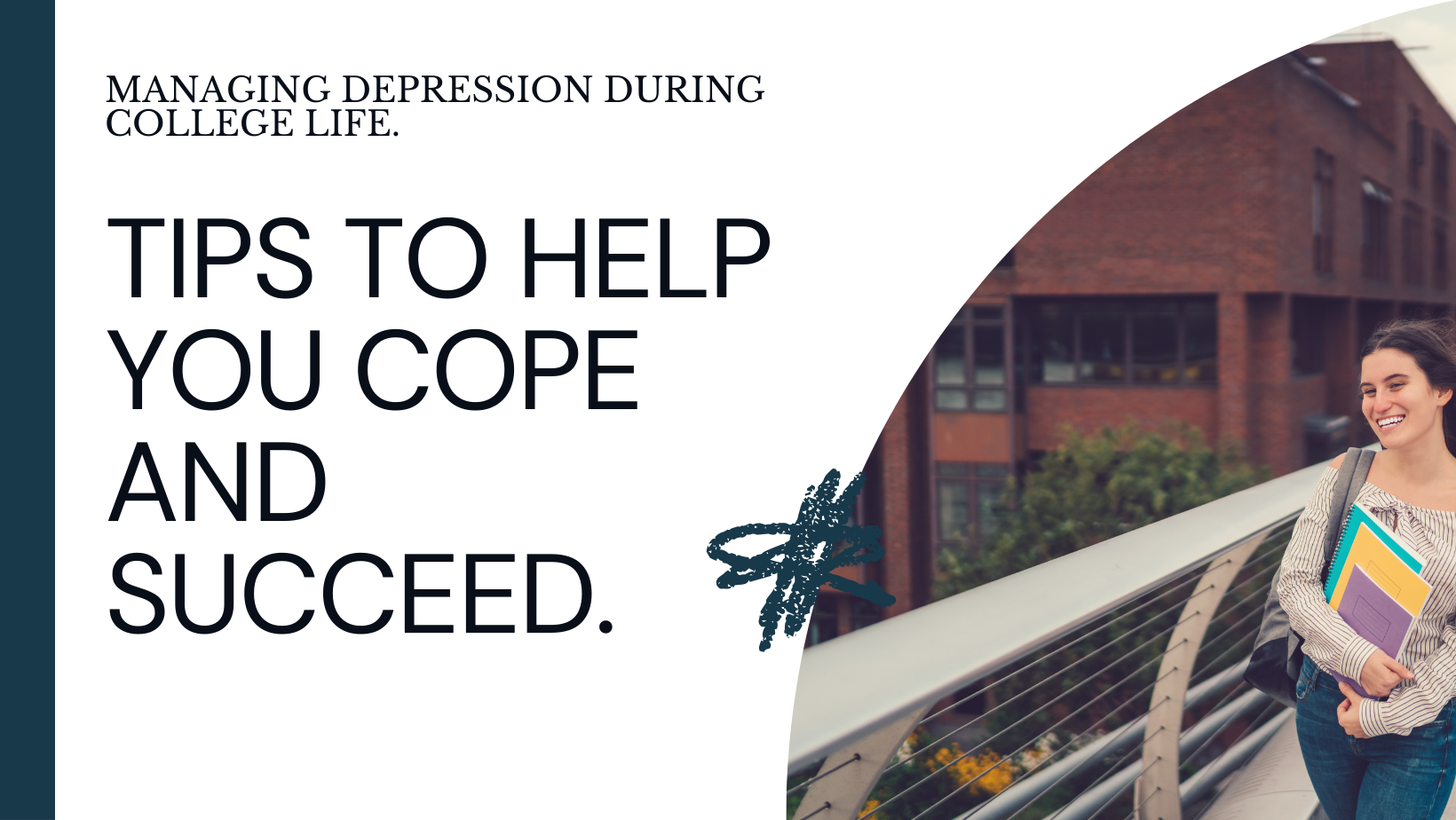
College Blues Getting You Down? Tips to Manage Depression During Studies
College Blues Getting You Down? Tips to Manage Depression During Studies College is a time of exploration, learning, and growth. But for many students across India, it's also a period marked by stress, anxiety, and sometimes, depression. The transition to college life, coupled with academic pressures and personal adjustments, can be overwhelming. If you're feeling the college blues, you're not alone. Here are some actionable tips to help you manage depression during your studies, with a special focus on how CareMe Health can support you on this journey.
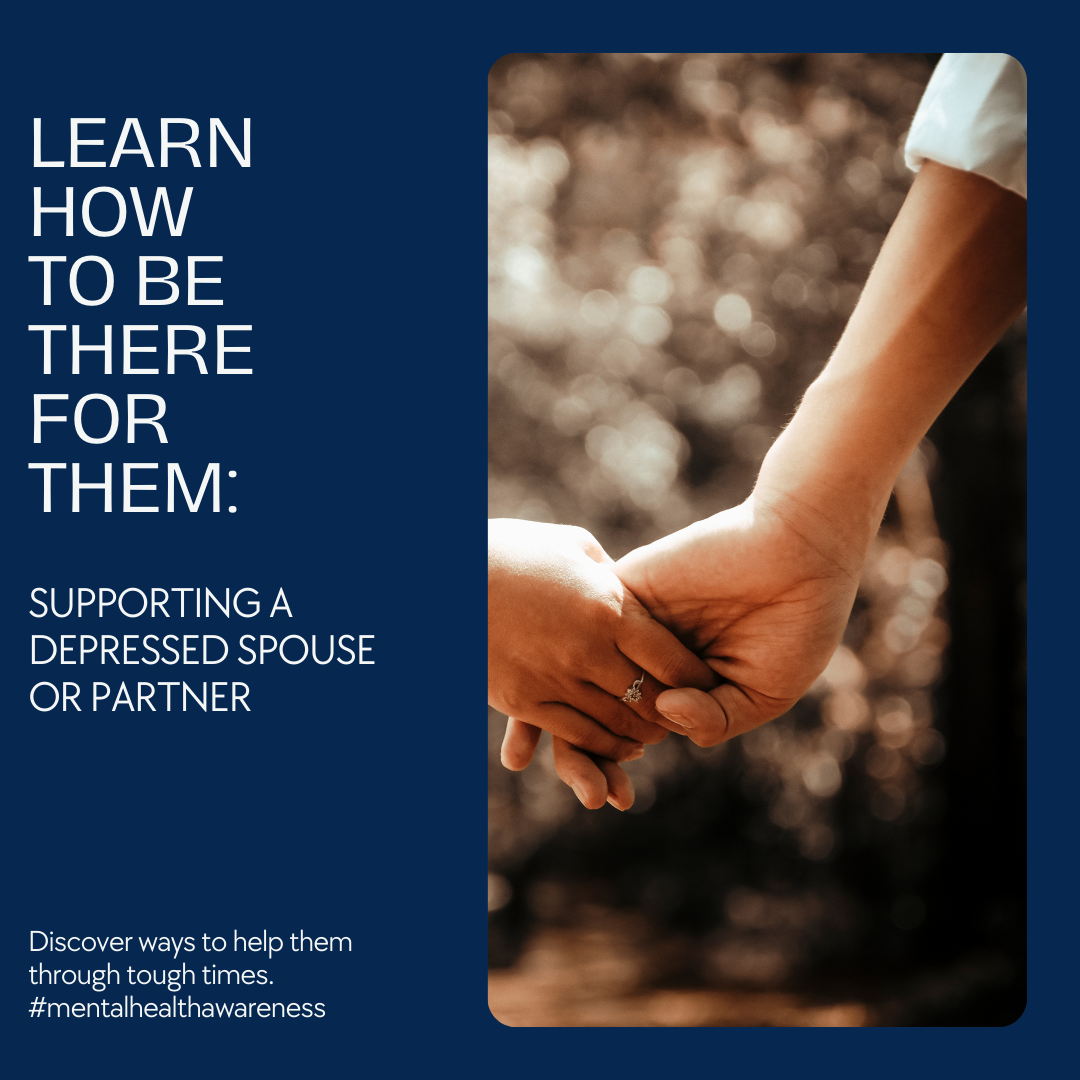
Supporting a Depressed spouse or Partner: Ways to Be There for Them
Supporting a Depressed Spouse or Partner: Ways to Be There for Them Witnessing a loved one struggle with depression can be heart-wrenching. In the intricate tapestry of Indian society, where relationships are the cornerstone of life, the impact of a partner's depression not only affects them but also reverberates through the entire family. Understanding how to support a depressed spouse or partner is crucial in aiding their journey toward healing while also maintaining your well-being.
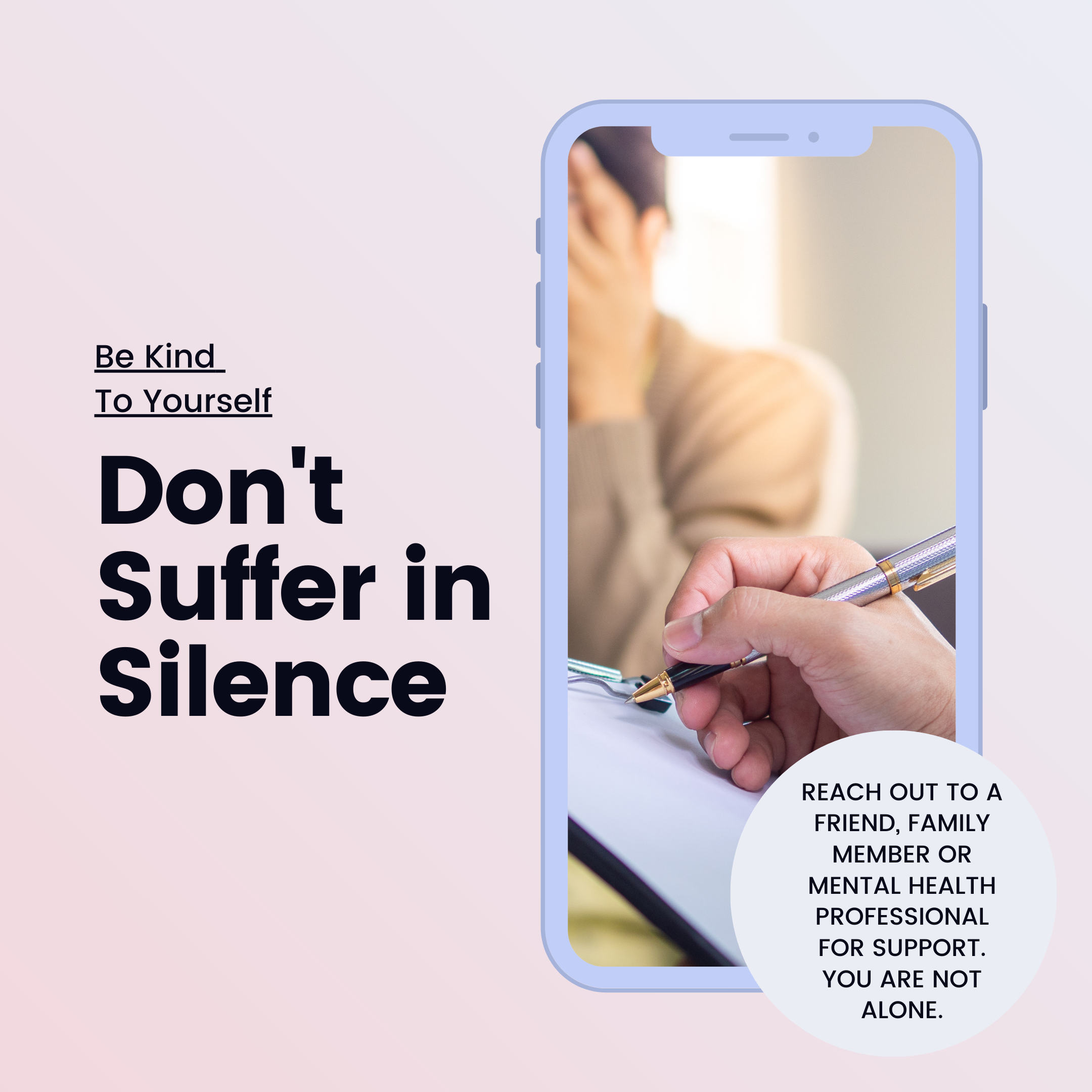
Don't Suffer in Silence: Talk to Someone About Feeling Depressed
Don't Suffer in Silence: Talk to Someone About Feeling Depressed In the rich tapestry of Indian society, where vibrant traditions meet modern aspirations, the topic of mental health often remains veiled in silence. Depression, a common yet misunderstood condition, lurks in the shadows of this silence, affecting millions across the nation. It's time to break the silence and speak up. Remember, when feelings of depression weigh you down, talking to someone can be the first step toward lightening the burden.
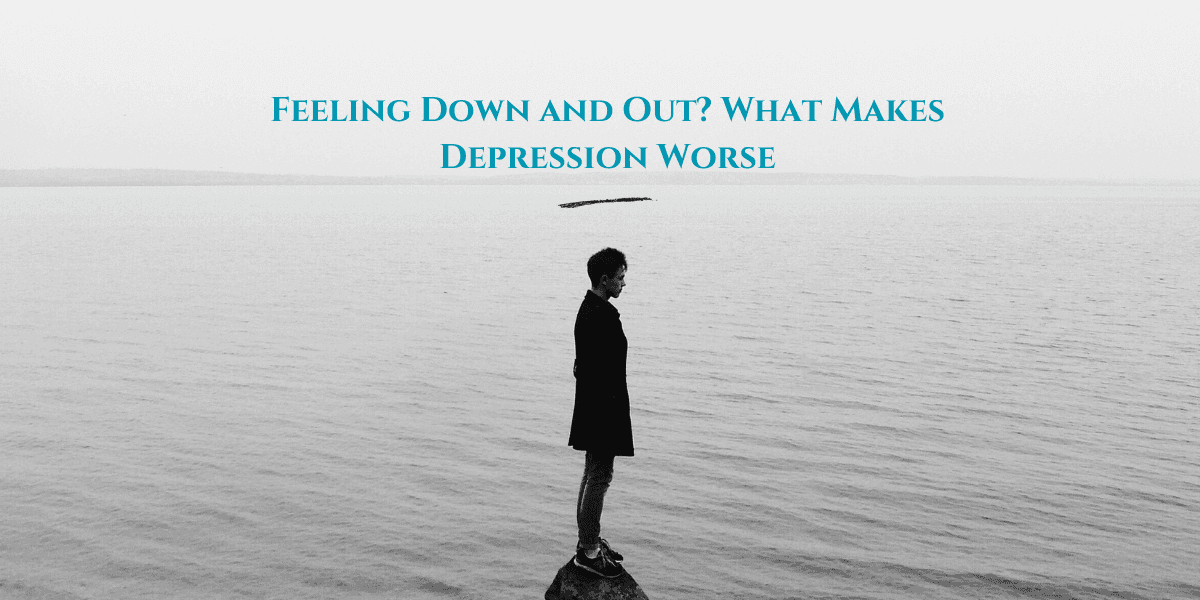
Feeling Down and Out? What Makes Depression Worse
Feeling Down and Out? What Makes Depression Worse In the vibrant tapestry of Indian society, where the hustle of daily life merges with the rich hues of culture and tradition, mental health often takes a backseat. Depression, a common but serious mood disorder, affects many, yet the conversation around it remains shrouded in silence. Understanding what exacerbates depression is crucial, especially in the Indian context, where unique cultural, social, and economic factors come into play.

Spouse or Partner Stressed Out? Simple Tips to Support Them During Tough Times
When the dynamics of relationships intertwine with the complexities of modern challenges, stress can easily find its way into our lives and the lives of our loved ones. When your spouse or partner is navigating through tough times, finding the right way to support them becomes paramount. This blog offers simple yet effective tips to help your significant other, with CareMe Health playing a pivotal role in this supportive journey.

Need Someone to Talk To? Who You Can Open Up to About Feeling Stressed
Need Someone to Talk To? Who You Can Open Up to About Feeling Stressed In the bustling life of India, where the vibrant colors of culture blend with the rapid pace of modernization, stress has become a frequent visitor in the lives of many. Finding someone to talk to in these moments can be more than just comforting; it can be a lifeline. Let's explore the avenues available for those feeling the weight of stress and how CareMe Health emerges as a beacon of support and understanding.

What Causes Stress to Get Worse?
What Causes Stress to Get Worse? An In-Depth Look with CareMe Health In our fast-paced world, stress has become a constant companion for many of us. But what turns everyday stress into a more severe problem? Understanding the factors that exacerbate stress is crucial, especially in the context of the diverse and vibrant landscape of India. This blog delves into these factors, supported by scientific evidence, and showcases how CareMe Health is your ally in managing stress effectively.

Sleep and Mental Health: Understanding the Vital Connection
Imagine a world draped in the velvet cloak of night, where every soul retreats to the silent embrace of sleep, recharging for the dawn yet to come. But what if, in this tranquil realm, your mind decides to embark on its own nocturnal adventure, weaving through past conversations, unresolved tasks, and the endless "what ifs" of tomorrow? This isn't just a fleeting moment of restlessness; it's a nightly saga for millions. Surprisingly, research reveals a striking narrative: nearly 8 in 10 individuals grappling with mental health challenges are also caught in the tangled web of sleep disturbances. It's as if their minds are on an endless marathon, with no finish line in sight.
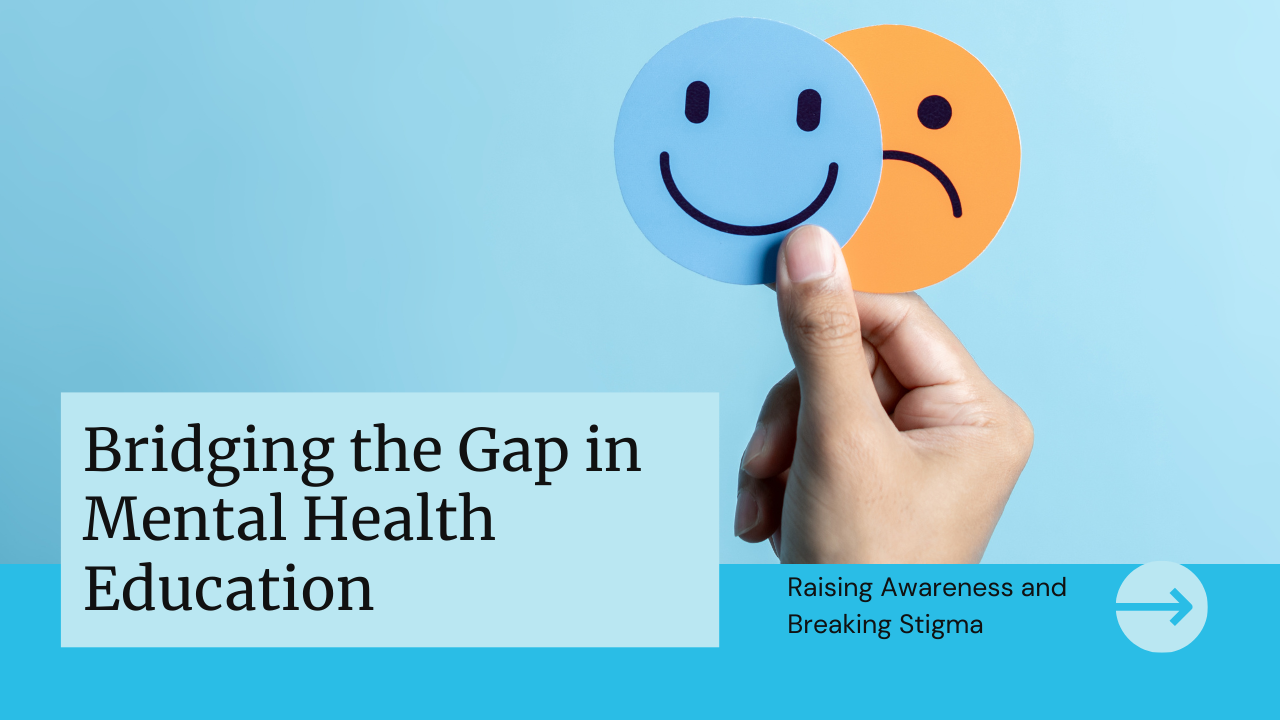
Mind Matters: Bridging the Gap in Mental Health Education
In India, a country buzzing with life, colors, and sounds, there's a quiet issue that doesn't get talked about much. Imagine this: out of every 10 people you know, about 1 or 2 might be struggling with something going on in their minds, like feeling really sad, worried, or stressed out. But here's the thing – most folks don't get the help they need. It's like having a bad cough that never gets checked because you don't know you can see a doctor or are too shy to talk about it.
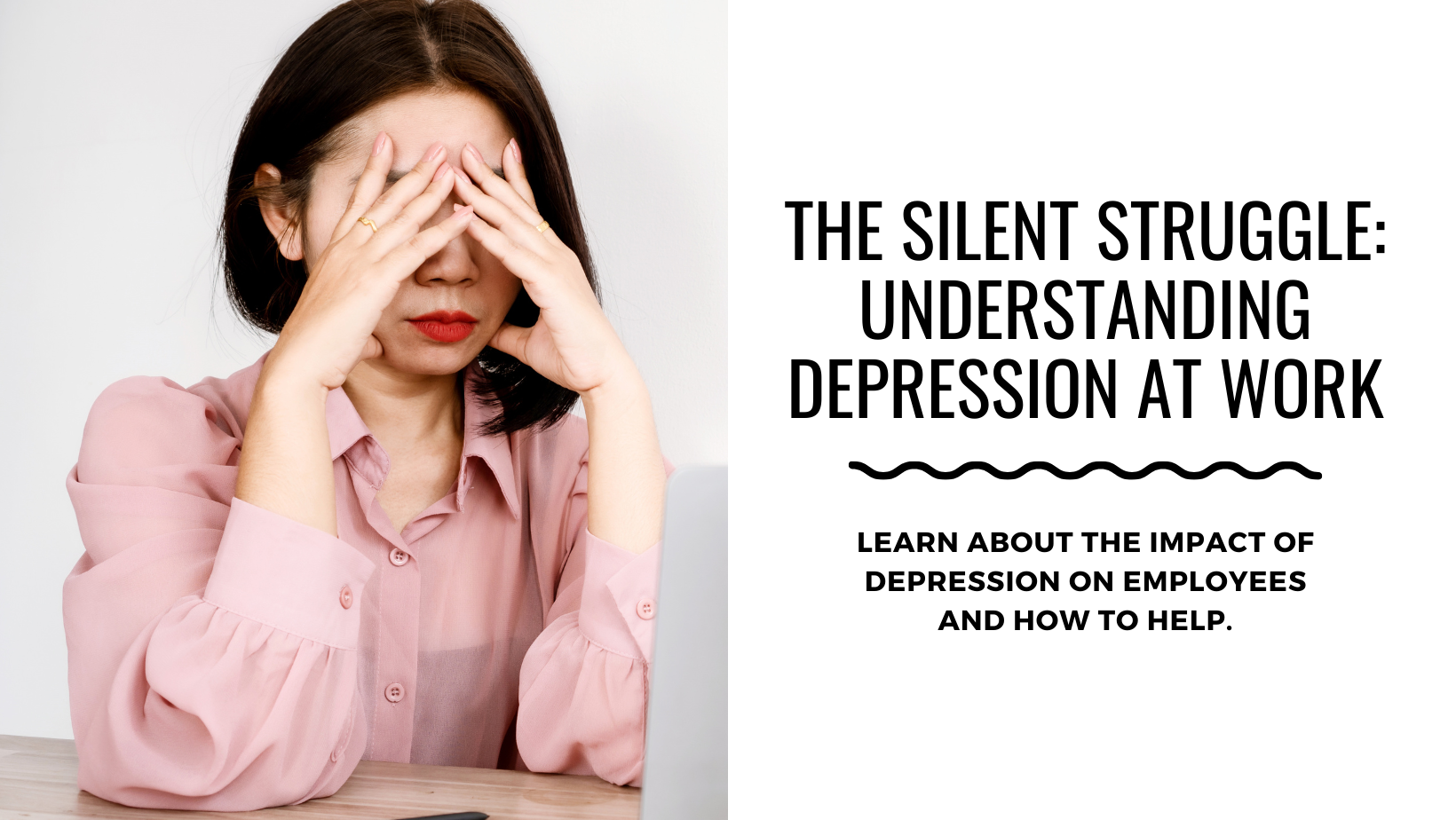
The Silent Struggle: Understanding Depression in the Workplace
Depression is like a shadow that follows you around, not just at home but into your workplace too. It's much more than feeling sad or having a bad day. Depression is a real medical condition that can deeply affect how you think, feel, and handle daily activities such as sleeping, eating, or working. When we talk about "depression symptoms," we're referring to a range of feelings like persistent sadness, a sense of hopelessness, and a lack of interest in things that once brought joy.
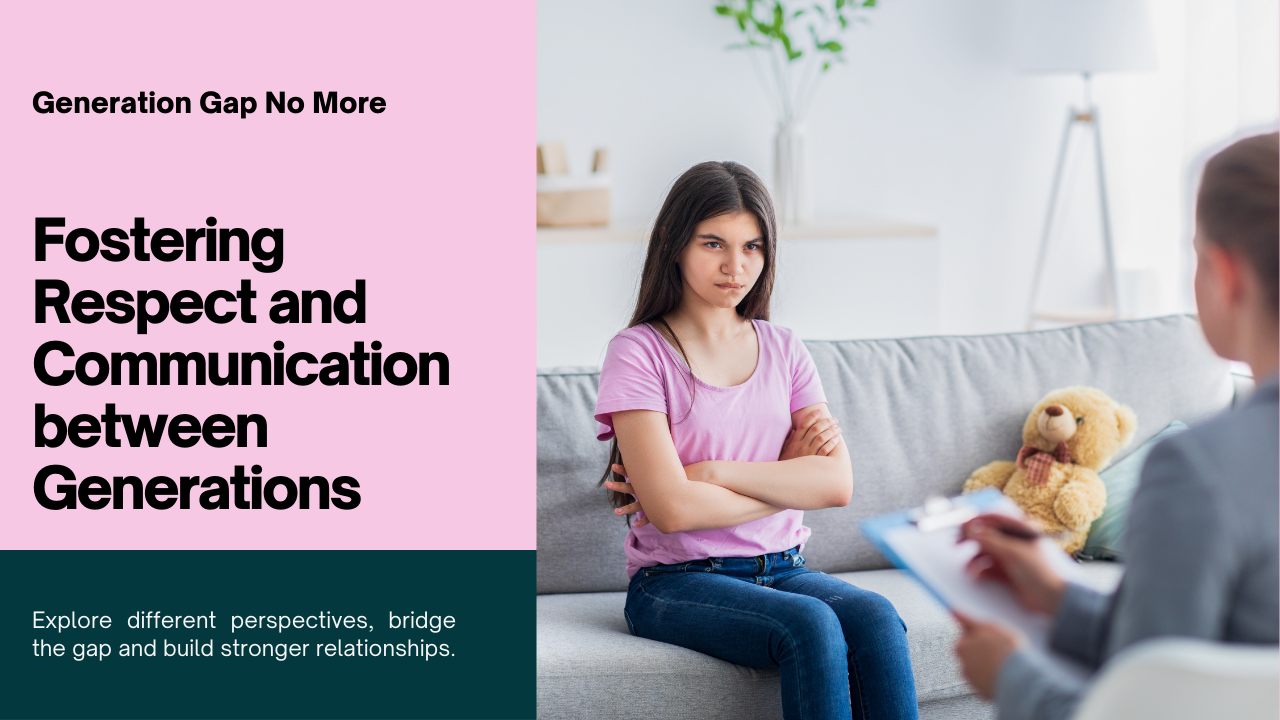
Teen Talk: Fostering Respect and Communication Between Generations
In today's fast-paced digital age, the art of healthy communication between teenagers and adults has never been more critical. The advent of technology and the internet has reshaped the landscape of human interactions, bringing unique challenges to the forefront of familial relationships. Teenagers, who are at a pivotal stage of development, find themselves navigating a world vastly different from that of their parents' youth. This generational divide, amplified by digital communication platforms, can often lead to misunderstandings and a disconnect between family members

Long-Distance Family Ties: Supporting Your Parents' Mental Health from Abroad
In today's globalized world, it's not uncommon for family members to find themselves scattered across different countries in pursuit of education, career opportunities, or personal growth. This phenomenon is particularly resonant in India, a country known for its strong family bonds and collective culture. A recent survey highlighted that nearly 20% of Indian adults have close family members living abroad, underscoring the prevalence of long-distance family ties within the Indian diaspora.

Breakup Blues: Why You Can't Stop Checking Your Ex's WhatsApp Status
Breakups are never easy. Whether it's an amicable parting or a heart-wrenching separation, the end of a romantic relationship often leaves us grappling with a whirlwind of emotions.

Pre-Wedding Jitters: Managing Anxiety Before the Big Day
In this article, we will delve into the intricacies of pre-wedding jitters, exploring the factors that contribute to its onset and the ways in which it can impact mental well-being. From understanding the root causes of pre-wedding anxiety to practical strategies for managing and mitigating its effects, we will navigate this emotional terrain with compassion and insight. Whether you're a bride-to-be or a groom on the verge of saying "I do," our aim is to equip you with the tools and knowledge to navigate the journey to the altar with confidence and grace.
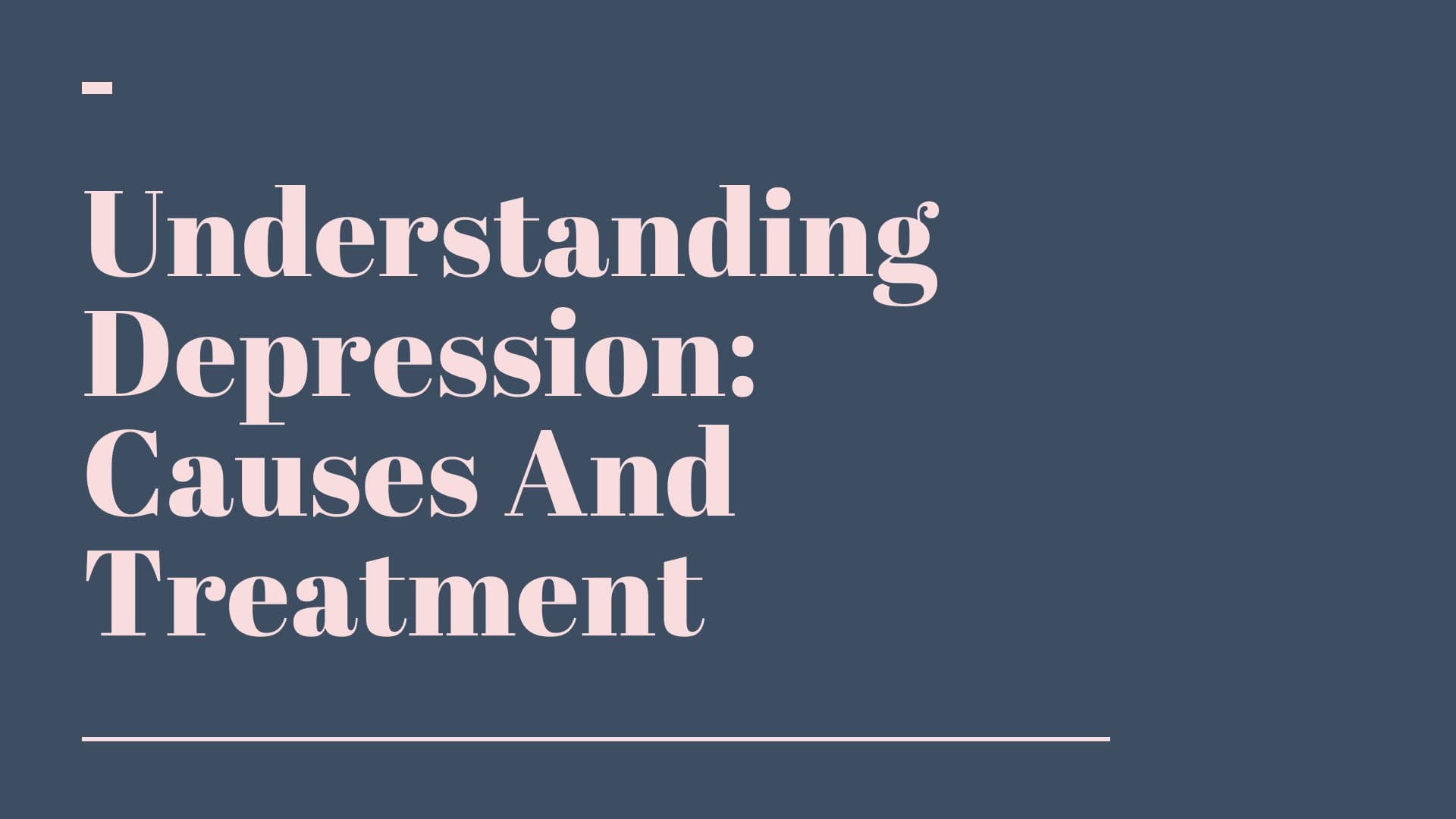
Understanding Depression: Causes And Treatment
Depression is a mental health disorder characterized by persistent feelings of sadness, hopelessness, and loss of interest in daily activities.

The Final Weeks: Navigating The Psychological Landscape Of Employee Departure
The act of leaving a job, whether by choice or circumstance, is a significant life event that carries with it a complexity often underestimated by both employees and employers.
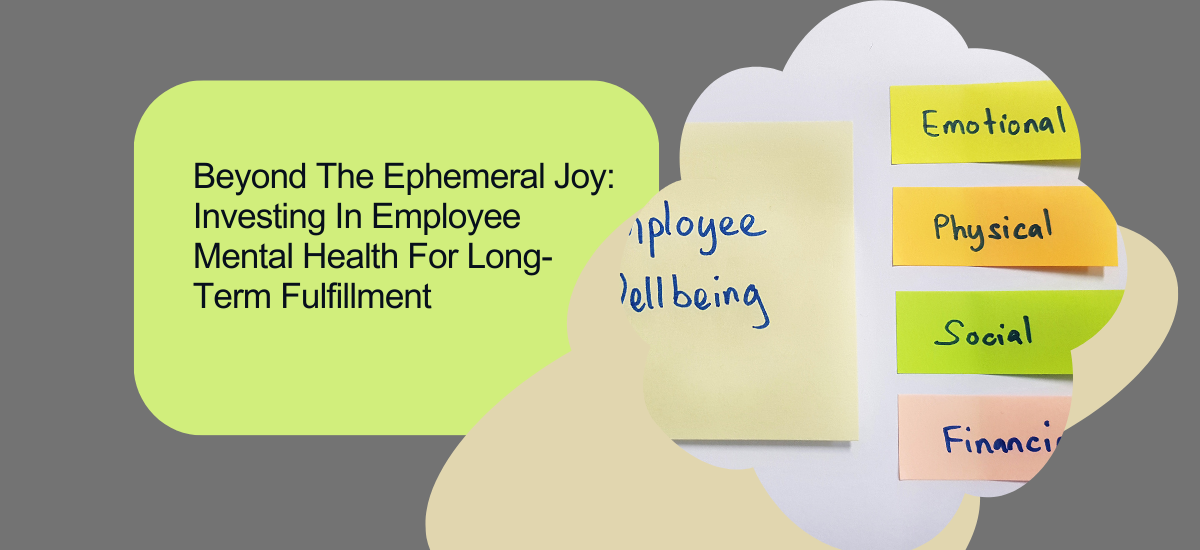
Beyond The Ephemeral Joy: Investing In Employee Mental Health For Long-Term Fulfillment
In the bustling corporate landscape of India, companies are continually seeking ways to enhance employee satisfaction and productivity.

Empowering Organizations To Thrive Amidst Job Insecurity With CareMe Health 👥💪
In an evolving corporate landscape, characterized by rapid technological advancements and dynamic work environments
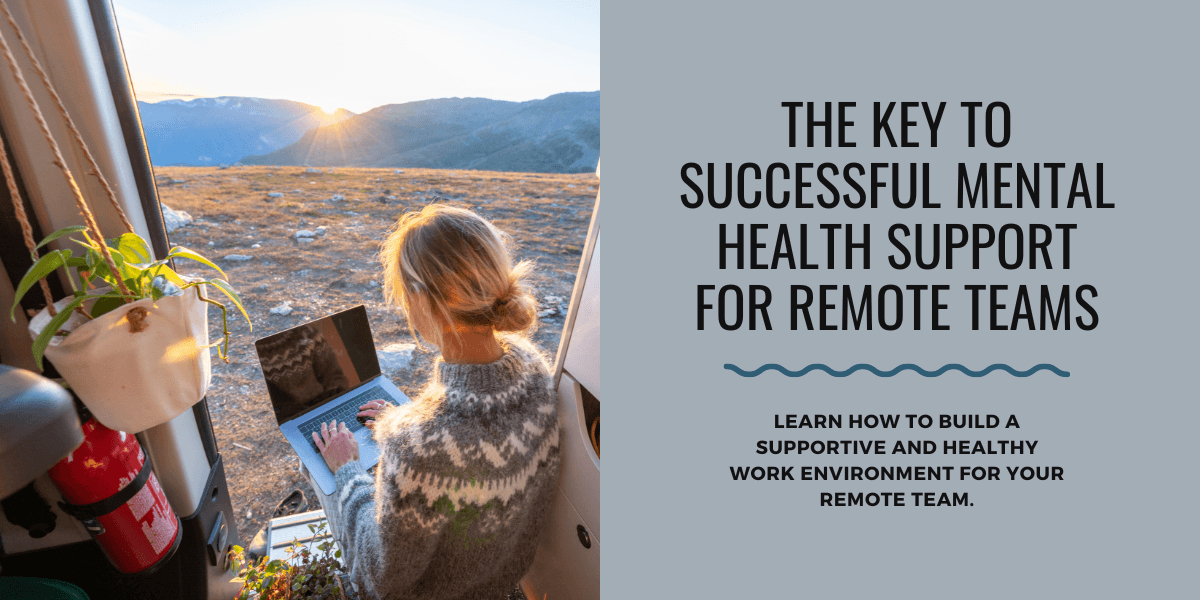
The Key To Successful Mental Health Support For Remote Teams
The workplace has changed dramatically over the past few decades, and companies today face many challenges in supporting the mental health of their employees.

Change – The Only Constant
In an era like today’s where every aspect of life is in extremes, be it the larger-than-life portrayals of characters in films, career aspirations.
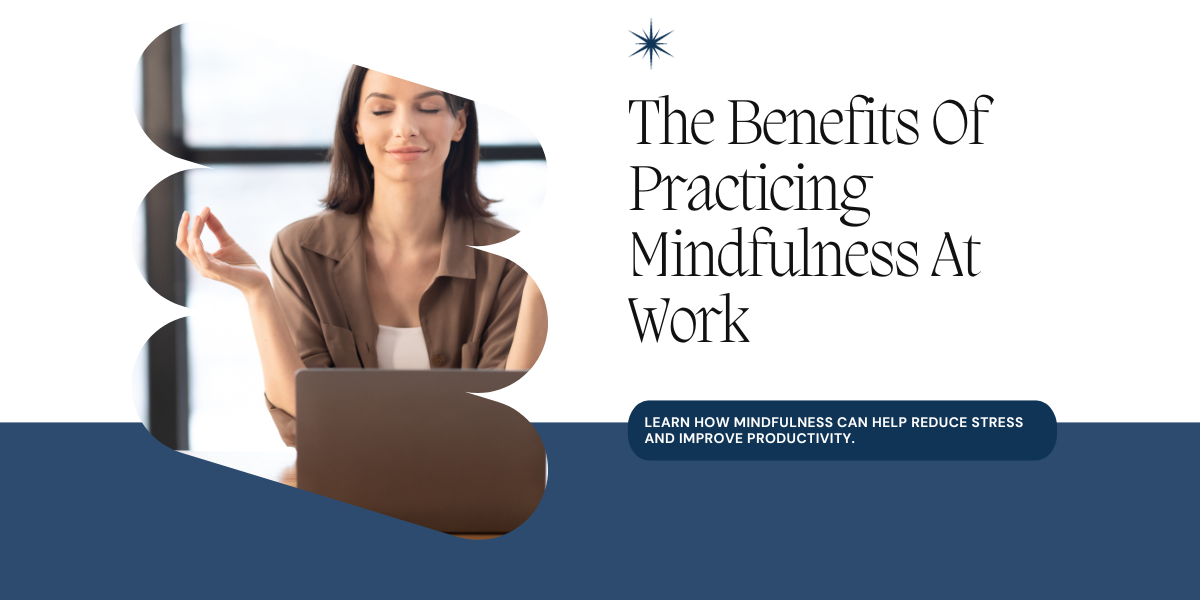
The Benefits Of Practicing Mindfulness At Work
In today’s fast-paced and demanding work environment, employees are facing increasing levels of stress, burnout, and unhappiness.

Things To Consider When Undergoing Testing For Bipolar Disorder: What You Need To Know
Bipolar disorder, also known as manic-depressive illness, is a mental health condition characterized by extreme mood swings or episodes of mania and depression.

What Kind Of Therapy Is Best For Me?
Finding the best form of treatment for mental health issues is crucial. Some psychological problems are best treated with a specific type of strategy. We will be discussing primary approaches used in treating common mental health issues.
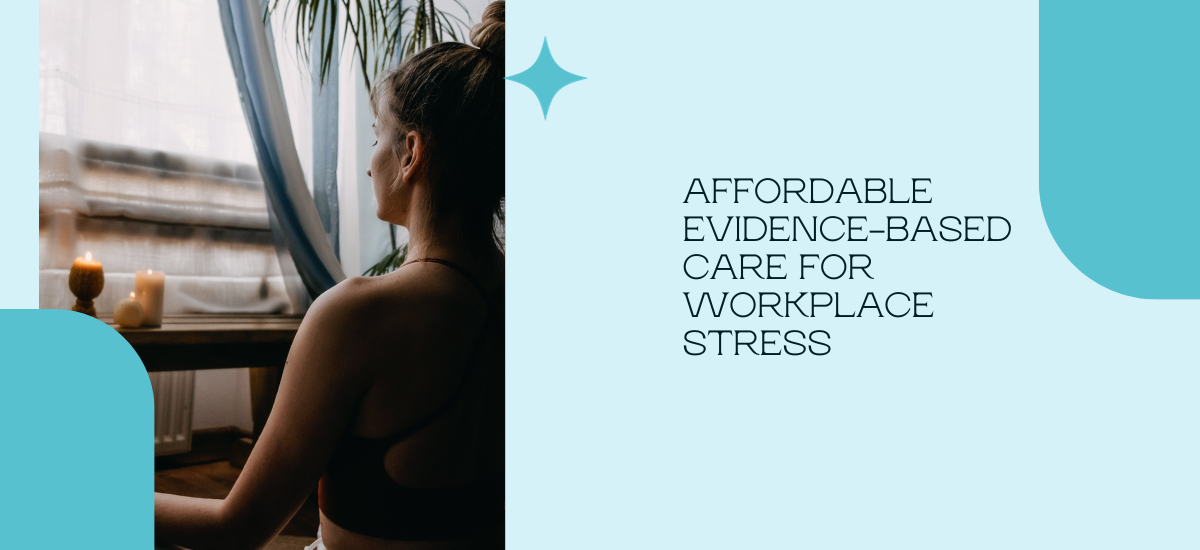
Affordable Evidence-Based Care For Workplace Stress
The workplace is a common setting for second-hand stress to occur. It can be caused by a variety of factors, including workplace bullying, witnessing traumatic events, exposure to stressful situations, and exposure to stressful colleagues.

A Guide To Helping Your Partner Cope With Panic Attacks
Panic attacks are a common experience for many people, but they can be especially distressing for those who suffer from them. For partners of someone who experiences panic attacks, it can be difficult to know how to support and comfort them during these episodes.

7 Habits You Might Develop Because Of Depression
Explore common habits associated with depression and gain insights into how to address them. Learn strategies for managing depression and promoting mental health.

10 Most Effective And Simple Stress Busters To Try Immediately
With many versions of the pandemic that came our way, we have experienced social distancing, isolation, couple lockdowns, and a shift to online learning, and working.
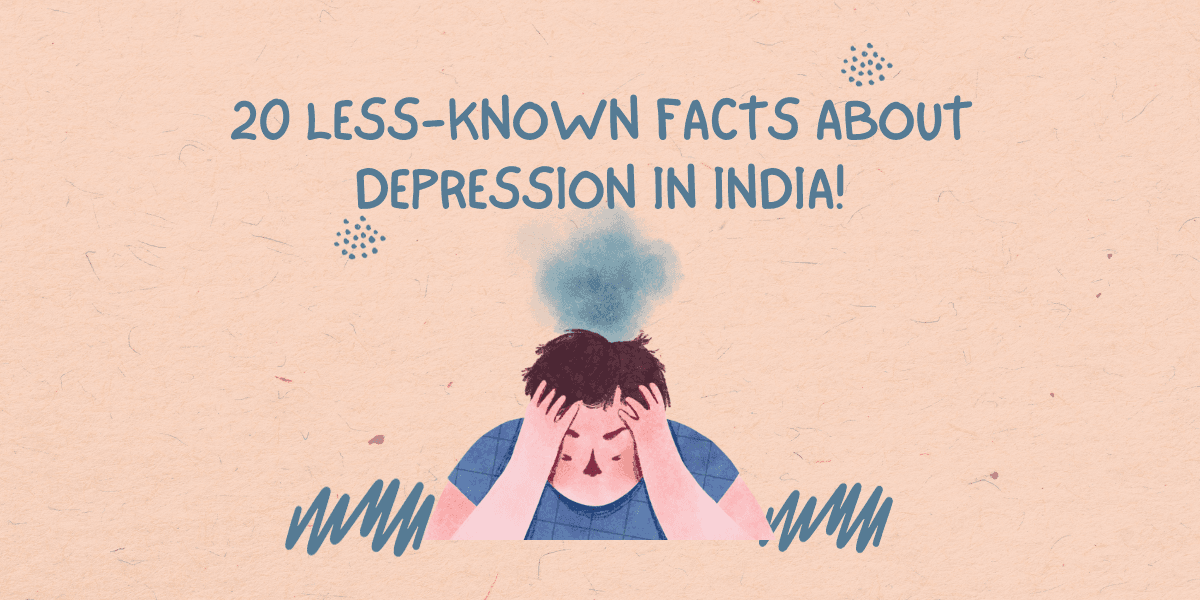
20 Less-Known Facts About Depression In India!
‘Depression’ is a common word in India. We use it to describe ourselves when we experience a failure, a heartbreak, or feel tired or upset.
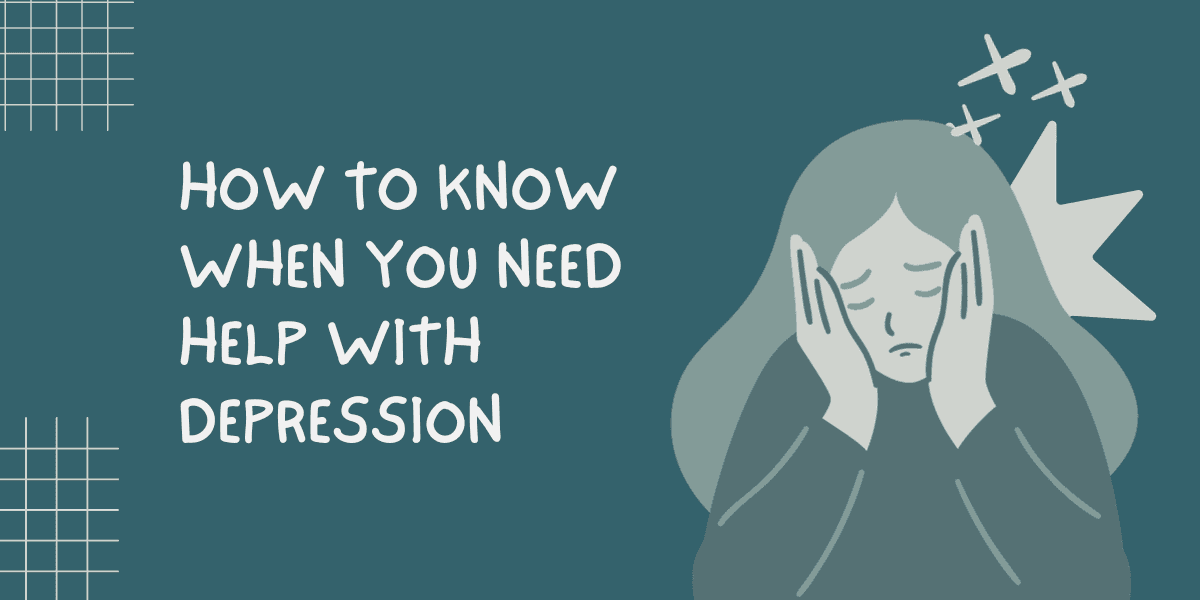
How To Know When You Need Help With Depression
Life is of ups and lows. Even the mighty mountains have high peaks and low steeps, so it is only normal for us to feel low from time to time.
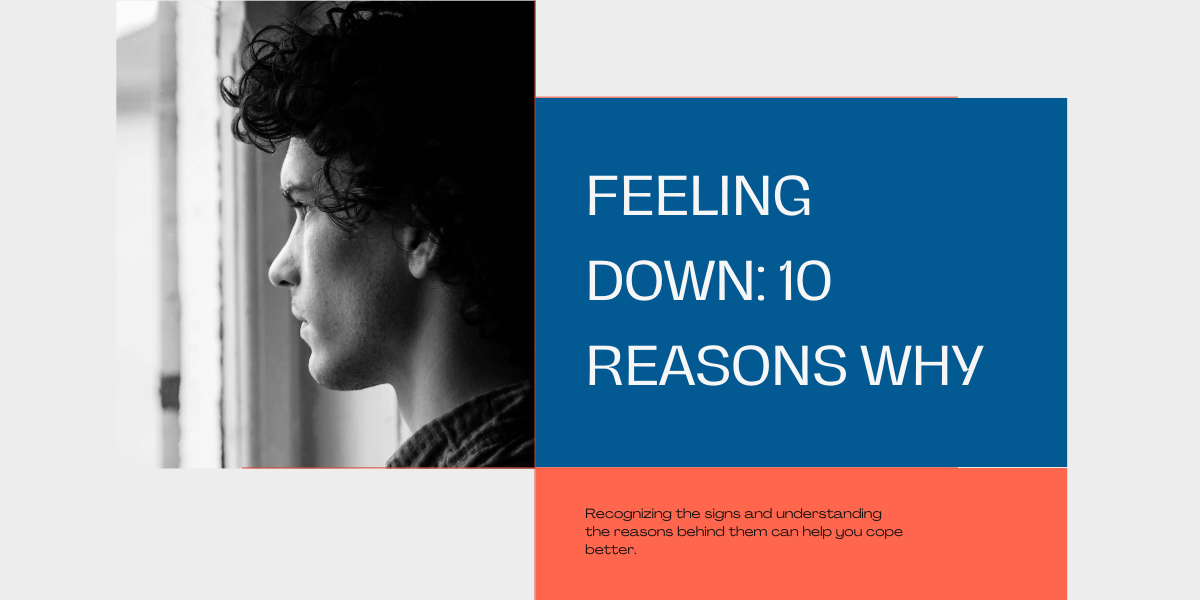
Don’t Ignore The Signs: 10 Reasons You’re Feeling Down
We accept happiness with open arms and a warm heart, but why do we shun sorrow? Both are emotions that come and go.